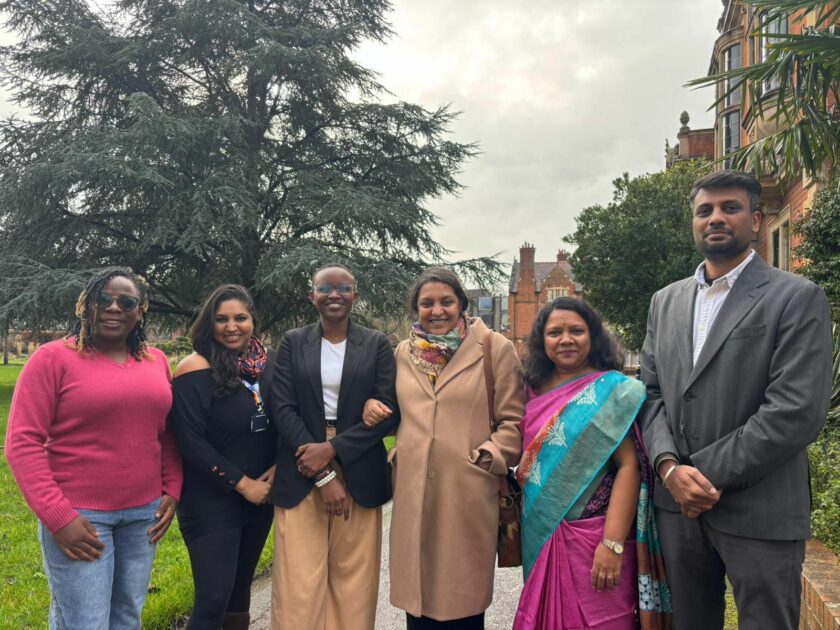
Our Cohort of 2025 at Somerville College, during their 2-week induction to the University of Oxford.
Dr Punam Amratia (Ifakara Health Institute, Tanzania) is developing AI-powered models to map and forecast malaria risk in response to climate and environmental change, helping health systems anticipate outbreaks and target interventions more effectively.
Dr Vivian Akoto-Adjepong (University of Energy and Natural Resources, Ghana) is designing lightweight AI tools for plant disease and pest detection that can run on mobile phones and low-resource devices, supporting farmers with rapid and affordable diagnostics.
Dr Theofrida Maginga (Sokoine University of Agriculture, Tanzania) is building AI systems that predict soil erosion risk and guide sustainable land use in Tanzania’s Uluguru Mountains, a region of considerable ecological and agricultural importance.
Dr Rohith AN (Indian Institute of Technology Delhi) is combining physics-based models and machine learning to simulate water and crop management under climate change, aiming to improve water security for vulnerable farming communities.
Dr Uma Das (Indian Institute of Information Technology Kalyani) is applying deep learning to predict extreme rainfall events such as cloudbursts and regional storms, to help improve disaster preparedness and resilience in South Asia.
Dr Meghna Agarwala (Ashoka University) is using AI to analyse fossil pollen, charcoal, and other paleo-proxies, revealing how climate, fire, and human activity have shaped South Asia’s ecosystems over thousands of years.
